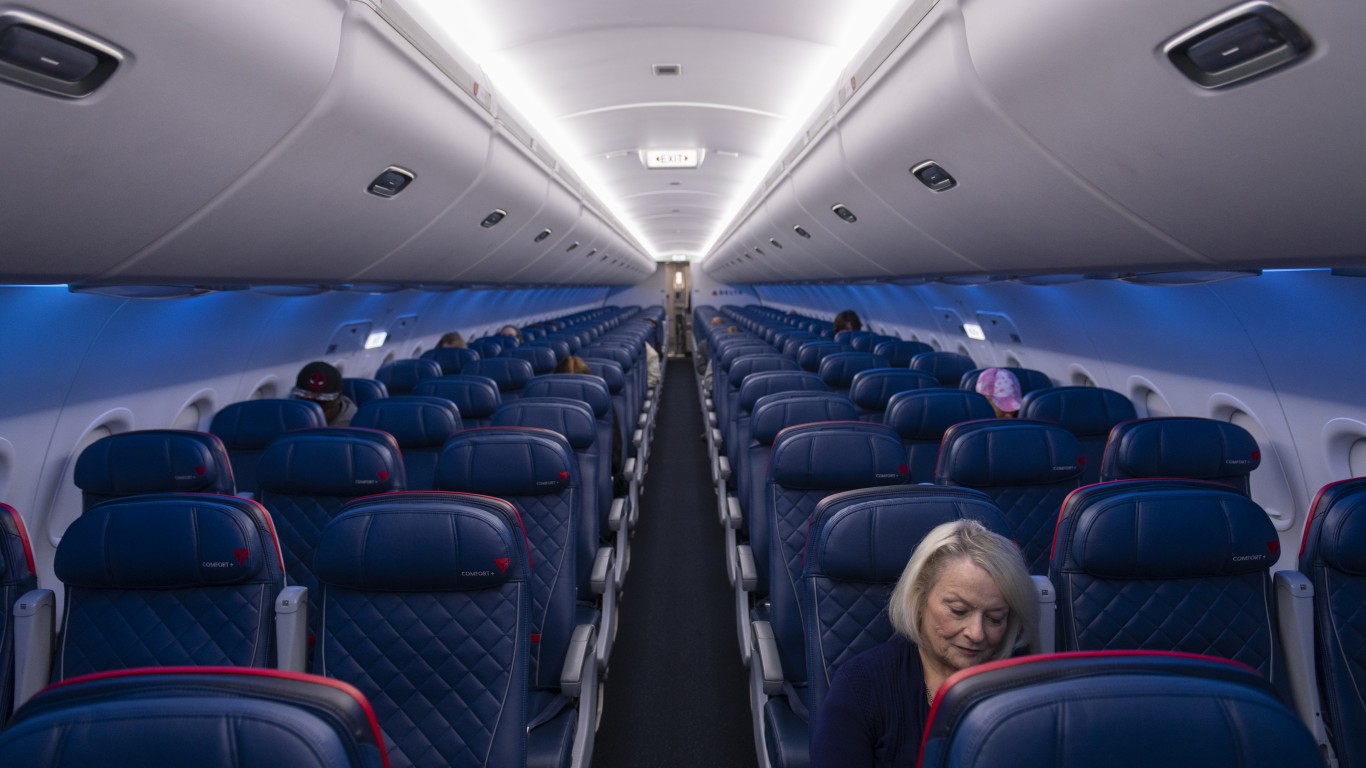
Delta Air Lines Inc. (NYSE: DAL) reported second-quarter 2020 results before markets opened Tuesday. The airline reported an adjusted quarterly loss per share of $4.43 on adjusted revenues of $1.2 billion. In the same period a year ago, Delta reported earnings per share of $2.35 on revenues of $12.45 billion. Second-quarter results also compare to the consensus estimates for a loss per share of $4.12 on revenues of $1.4 billion.
With airline traffic cut by as much as 90% during the quarter, no one expects much from any airline, and Delta’s worse-than-expected showing has drawn a line under those weak expectations. The other three major U.S. airline stocks all traded down following Delta’s report.
Delta’s adjusted pretax loss of $3.9 billion excludes $3.2 billion in items directly related to the COVID-19 pandemic and the airline’s resulting fleet-related restructuring charges, equity investment write-downs and the benefit of $5.4 billion in CARES Act grants and loans. The airline noted that its quarterly capacity fell by 85% year over year and was the leading factor in the year-over-year drop in adjusted revenue.
During the quarter, Delta wrote down $1.1 billion in its investment in LATAM Airlines and $770 million in its investment in AeroMexico. Delta also took a $200 million write-down on its investment in Virgin Atlantic.
Noting the “truly staggering impact” of the coronavirus outbreak on Delta’s business, CEO Ed Bastian commented: “Given the combined effects of the pandemic and associated financial impact on the global economy, we continue to believe that it will be more than two years before we see a sustainable recovery.”
Like many other companies, Delta expended a lot of effort in the second quarter to boost its financial liquidity. Including the CARES Act funding, Delta said it raised nearly $15 billion in liquidity since early March and intends to apply for an additional $4.6 billion under the secured loan program offered through the CARES Act.
The airline was able to reduce its costs by about 50% in the quarter and burned through $290 million in cash, for a daily rate of $43 million. In June, the daily average cash burn fell to $27 million, 70% below the burn rate in late March. Delta expects to achieve a breakeven cash burn rate by the end of this year.
In an unprecedented environment like this, survival becomes the focus as revenues and profits struggle to recover. The company did not offer guidance, but analysts are expecting a net loss per share of $2.05 in the third quarter and a full-year loss of $7.08 per share. Revenues for the third quarter are tabbed at $4.13 billion, while full-year revenues are forecast at $20.4 billion, less than half of 2019 revenue.
Shares traded down about 2.7% at $26.10 early Tuesday morning, in a 52-week range of $17.51 to $63.44. The consensus 12-month price target on the stock is $36.20.
In 20 Years, I Haven’t Seen A Cash Back Card This Good
After two decades of reviewing financial products I haven’t seen anything like this. Credit card companies are at war, handing out free rewards and benefits to win the best customers.
A good cash back card can be worth thousands of dollars a year in free money, not to mention other perks like travel, insurance, and access to fancy lounges.
Our top pick today pays up to 5% cash back, a $200 bonus on top, and $0 annual fee. Click here to apply before they stop offering rewards this generous.
Flywheel Publishing has partnered with CardRatings for our coverage of credit card products. Flywheel Publishing and CardRatings may receive a commission from card issuers.
Thank you for reading! Have some feedback for us?
Contact the 24/7 Wall St. editorial team.


